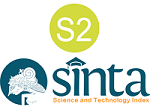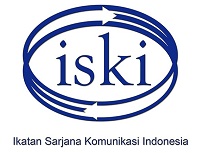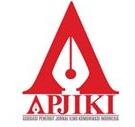Communication strategy of Wat Phra Sri Maha Uma Devi as a Hindu Tourism Destination in Bangkok
Abstract
Background: Wat Phra Sri Maha Uma Devi, commonly known as Wat Khaek Silom, is a popular and important Hindu temple in Bangkok, serving as a tourist attraction. Through communication and promotion efforts through digital media and collaborating with various parties to create attractive religious tourism. Despite its popularity, research on effective communication strategies to increase its attractiveness as a religious tourism destination is limited. Purpose: This study aims to analyze and develop effective communication strategies to promote Wat Phra Sri Maha Uma Devi as a Hindu tourist destination in Bangkok. The focus of the research is on communication strategies that are carried out through integrating cultural and religious values, as well as utilizing the use of digital communication media. Methods: This research employed a qualitative approach using a case study methodology, including interviews and participatory observations of temple management, tourists, and the local community. This approach was taken to gain a thorough understanding of the experiences, views, and challenges in managing religious tourism. Results: The findings highlight that effective communication, such as the use of digital communication media platforms and multilingual educational materials, significantly enhances the tourist experience and promotes sustainable tourism. The challenges faced are maintaining the authenticity of the temples while meeting the growing demands of tourism. Conclusion: Wat Phra Sri Maha Uma Devi has successfully integrated religious and cultural elements with effective communication strategies, making it a major tourist destination for Hindus. Implications: The findings of this study provide insights for tourism authorities and temple management to develop sustainable communication strategies that balance cultural preservation with commercial development.
Keywords
Full Text:
PDFReferences
Adeleye, B. N. (2023). Re-examining the tourism-led growth nexus and the role of information and communication technology in East Asia and the Pacific. Heliyon, 9(2). https://doi.org/10.1016/j.heliyon.2023.e13505
Aman, E. E., Kangai, D., & Papp-Vary, A. F. (2024). Digital marketing role in the tourism sector in post-COVID-19. In Tourist Behaviour and the New Normal (Vol. 1, pp. 129–146). Palgrave Macmillan.
Arattawutikul, S., Sangkauraks, N., & Lakkhananurak, S. (2017). Development of religious tourism management models in ratchaburi Province. Veridian E-Journal Silpakorn University.
Bakti, I., Sumartias, S., Damayanti, T., Aat, D., & Nugraha, R. (2018). Pengembangan model komunikasi pariwisata berbasis kearifan lokal di kawasan Geopark Pangandaran. Jurnal Kajian Komunikasi, 6(2). https://doi.org/10.24198/jkk.v6i2.18459
Chen, J., Park, H., Fan, P., Tian, L., Ouyang, Z., & Lafortezza, R. (2021). Cultural landmarks and urban landscapes in three contrasting societies. Sustainability (Switzerland), 13(8). https://doi.org/10.3390/su13084295
Creswell, J. W., & Poth, C. N. (2018). Qualitative inquiry & research design (4th ed.). SAGE Publications, Inc.
Dadová, I., & Soviar, J. (2021). The application of online marketing tools in marketing communication of the entities with the tourism offer in 2020 in Slovakia. Transportation Research Procedia, 55, 1791–1799. https://doi.org/10.1016/j.trpro.2021.07.170
Damayanti, T., Dida, S., Hidayat, D. R., & Cho, S. K. (2021). Malaysian medical tourism communication in shaping Indonesian public opinion. Jurnal Kajian Komunikasi, 9(2), 138–148. https://doi.org/10.24198/jkk.v9i2.35852
Department of Religious Affairs. (2015). Guidelines for Implementing the Religious Pilgrimage Tourism Promotion Project Bangkok. Ministry of Culture Thailand. https://www.m-culture.go.th/en
Gambhir, D., Khalid, A. M., & Sharma, S. (2021). Religious tourism and sustainable development: Perspectives from Hill States in India. In Handbook of Sustainable Development and Leisure Services (1st ed.). Springer in Cham. https://doi.org/10.1007/978-3-030-59820-4_18
Gato, M., Dias, Á., Pereira, L., da Costa, R. L., & Gonçalves, R. (2022). Marketing communication and creative tourism: An analysis of the local destination management organization. Journal of Open Innovation: Technology, Market, and Complexity, 8(1). https://doi.org/10.3390/joitmc8010040
Kim, B., Kim, S., & King, B. (2020). Religious tourism studies: Evolution, progress, and future prospects. Tourism Recreation Research, 45(2), 185–203. https://doi.org/10.1080/02508281.2019.1664084
Kumar, A., & Sharma, A. (2023). Observation method: A review study. Library Philosophy and Practice (e-Journal). https://digitalcommons.unl.edu/libphilprac
Li, J., Nguyen, T. H. H., & Coca-Stefaniak, J. A. (2021). Coronavirus impacts on post-pandemic planned travel behaviours. Annals of Tourism Research, 86. https://doi.org/10.1016/j.annals.2020.102964
Liu, T., & Chen, B. (2024). Rural tourism in China: ‘Root-seeking’ and construction of national identity. Journal of Hospitality and Tourism Management, 60, 141–151. https://doi.org/10.1016/j.jhtm.2024.06.017
Luongo, S., Sepe, F., & Del Gaudio, G. (2023). Regional innovation systems in tourism: The role of collaboration and competition. Journal of Open Innovation: Technology, Market, and Complexity, 9(4). https://doi.org/10.1016/j.joitmc.2023.100148
Marchi, V., Marasco, A., & Apicerni, V. (2023). Sustainability communication of tourism cities: A text mining approach. Cities (The International Journal of Ubran Policy and Planning), 143. https://doi.org/10.1016/j.cities.2023.104590
Meethaisong, T. (2018). Human: The paradigm of belief and thought. Journal of Philosophy and Rligion, 3(1).
Musa, H. G., Fatmawati, I., & Nuryakin, N. (2022). The strategies to promote Sudan’s tourism destinations post COVID-19 pandemic. PRofesi Humas Jurnal Ilmiah Ilmu Hubungan Masyarakat, 7(1), 38. https://doi.org/10.24198/prh.v7i1.37042
Novianti, E., Bakti, I., & Perbawasari, S. (2020). Jaringan komunikasi dan Implementasinya dalam mengembangkan Desa Berbudaya Lingkungan. Jurnal Kajian Komunikasi, 8(1), 85–98. https://doi.org/10.24198/jkk.v8i1.24004
Novianti, E., & Desiana, R. (2023). Persuasive communication and tourists behavior in protected areas. Jurnal Kajian Komunikasi, 11(1), 59. https://doi.org/10.24198/jkk.v11i1.43490
Pelasol, Ma. R. J., Tayoba, M. A. T., Mondero, E., Jugado, K., & Lahaylahay, C. (2012). Destination in the Southern Part of Iloilo, Philippines. JPAIR Multidisciplinary Research, 8(1), 90–97. https://doi.org/10.7719/jpair.v8i1.173
Pemmatra, J., Keawpong, S., Ututhvichienpanya, A., & Institute, R. (2019). The cultural Influence of Hinduism Toward Thai: Sri Maha Mariamman Temple (Hindu Temple) as the Case Study. International Journal of Development Administration Reseacrh, 2(1).
Perbawasari, S., Sjoraida, D. F., Anisa, R., Bakti, I., & Subekti, P. (2023). Communication and cultural inheritance through a traditional school in Dangian Village, Garut. Jurnal Kajian Komunikasi, 10(2), 133. https://doi.org/10.24198/jkk.v10i2.42170
Peuchthonglang, P. (2022). Chiang Mun Temple: Development According to Sappaya Principles to Promote Buddhist Tourism in Chiang Mai. Interdisciplinary Academic and Research Journal, 2(3). https://doi.org/10.14456/iarj.2022.28
Rodrigues, V., Breda, Z., & Rodrigues, C. (2024). The implications of industry 4.0 for the tourism sector: A systematic literature review. Heliyon, 10(11). https://doi.org/10.1016/j.heliyon.2024.e31590
Rodrigues, V., Eusébio, C., & Breda, Z. (2023). Enhancing sustainable development through tourism digitalisation: a systematic literature review. Information Technology and Tourism, 25(1), 13–45. https://doi.org/10.1007/s40558-022-00241-w
Singh, K. (2024). Exploring Hinduism’s vibrant legacy in Thailand’s cultural tapestry. Thaiger. https://thethaiger.com/guides/exploring-hinduisms-vibrant-legacy-in-thailands-cultural-tapestry
Singh, R., & Rana, P. (2023). Geography of Hindu Pilgrimage Places (Tīrthas) in India. In L. Lopez (Ed.), Geography of World Pilgrimages (pp. 297–322). Springer Geography. https://doi.org/https://doi.org/10.1007/978-3-031-32209-9_14
Sumra, K. B. B., & Alam, M. M. (2020). Promoting religious tourism management for creating a soft image of Pakistan. Global Development of Religious Tourism, 149–174. https://doi.org/10.4018/978-1-7998-5792-1.ch010
Temples in Bangkok. (2024). Wat Sri Maha Uma Devi. Templesinbangkok.Com. https://templesinbangkok.com/wat-sri-maha-uma-devi/
Tiago, F., Gil, A., Stemberger, S., & Borges-Tiago, T. (2021). Digital sustainability communication in tourism. Journal of Innovation and Knowledge, 6(1), 27–34. https://doi.org/10.1016/j.jik.2019.12.002
Tölkes, C. (2018). Sustainability communication in tourism – A literature review. Tourism Management Perspectives, 27, 10–21. https://doi.org/10.1016/j.tmp.2018.04.002
Xu, Y. Y. S., & Qin, T. (2023). Challenges in smart tourism: a media content analysis of digital barriers for senior tourists in China. Information Technologu & Tourism, 25, 665–682. https://doi.org/https://doi.org/10.1007/s40558-023-00270-z
Yasir. (2021). Komunikasi pariwisata dalam pengembangan destinasi wisata di Kecamatan Kuok Kabupaten Kampar. Jurnal Kajian Komunikasi, 9(1), 108–120. https://doi.org/10.24198/jkk.v9i1.26170
DOI: https://doi.org/10.24198/jkk.v12i2.57952
Refbacks
- There are currently no refbacks.
Copyright (c) 2024 Kunyapas Boonplook, Wassida Boonyanmetaporn

This work is licensed under a Creative Commons Attribution-NonCommercial-ShareAlike 4.0 International License.
Jurnal Kajian Komunikasi Indexed by:
Editorial Office of Jurnal Kajian Komunikasi:
Faculty of Communication Science, Universitas Padjadjaran
Jl. Raya Bandung-Sumedang Km. 21 Jatinangor, Sumedang 45363, Indonesia
WA: +6282316731181 (Chat Only)
Telephone: +62227796954
Faxmile: +62227794122
E-mail: jurnal.kajian.komunikasi@unpad.ac.id
Jurnal Kajian Komunikasi Supervised by:










